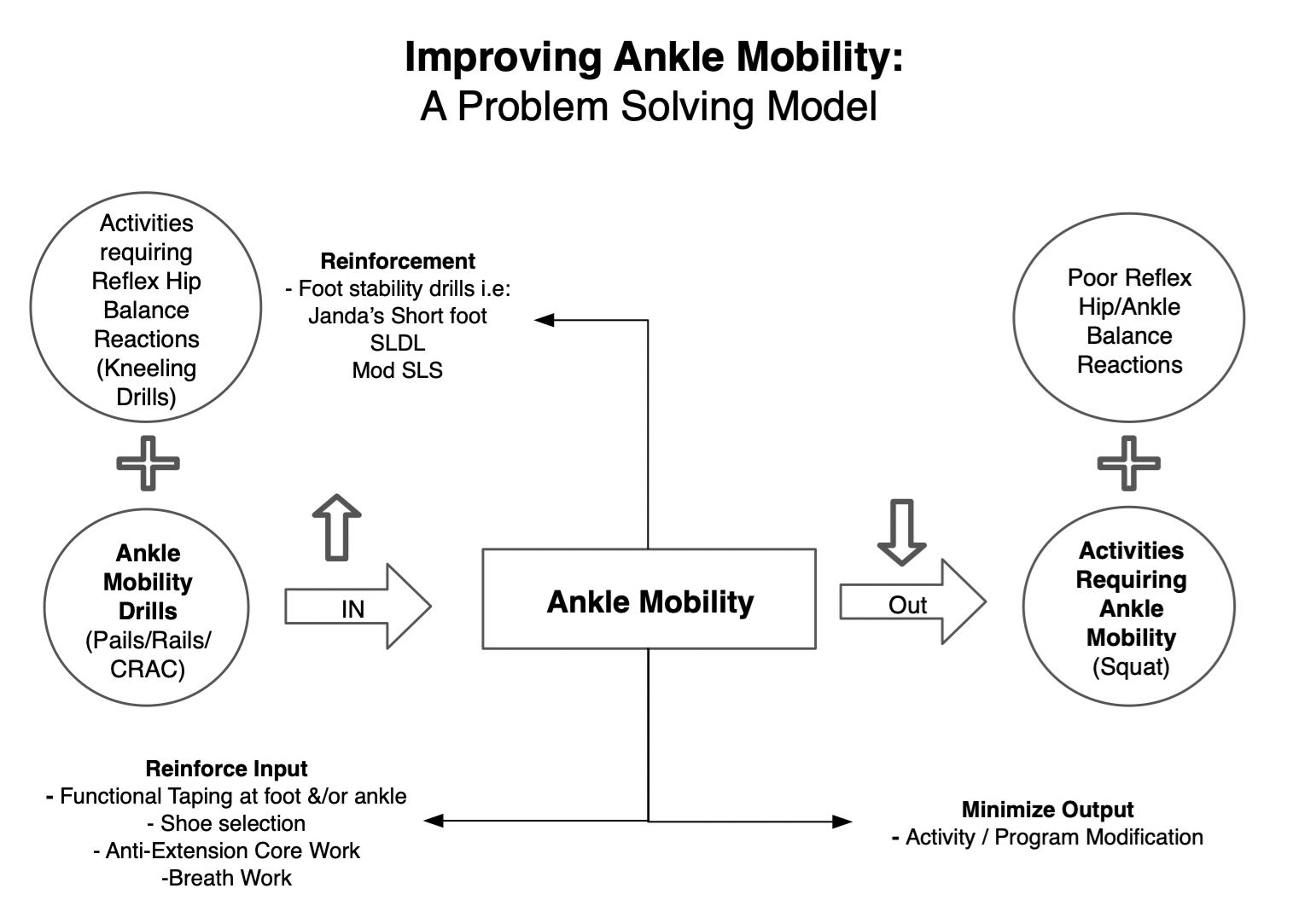Ankle Mobility: A Problem Solving Model
I’d like to share with you a problem solving model that has helped me get creative with stubborn ankle mobility issues.
Don't worry, I'm not going to drop "The top 3 ankle mobility drills that you should be doing with your client" on you...
That's not my thing.
Active Recovery: What is It?
This form of exercise should put very little stress on our joints, tendons, and muscles, while comfortably stressing our heart and lungs to improve the delivery of oxygen rich blood to our body. This is essential for healing, recovery from hard training, and basic health.
Dynamic Systems Theory of Motor Development: The Complete Guide for Sports Rehab Professionals
In terms of motor control and motor development, the literature suggests that the dynamic systems theory is the most accurate depiction of how the central nervous system both develops motor skills and continues to adapt motor control through life.
In this article we will take a deep dive into the dynamic systems theory of motor control by answering the following questions:
PNF Philosophy #4: Movement must be Specific, Purposeful, and Directed toward a Functional Goal.
If you want responsiveness from the client/patient, there has to be a functional purpose in the treatment that the client can feel and see how it is relating back to their function. It has to be salient or it has to matter to them.
PNF Philosophy #3: A Positive Approach
The 3rd philosophy of PNF states that in order to access someone’s potential, the treatment should begin with positives, “small wins” or should begin with what the individual can do.
PNF Philosophy #2: Treat the Whole Human Being
Given that we work with human beings, we believe that we have to consider the three aspects of the whole person: the physical, the intellectual and emotional aspects. This belief makes us ask fundamental questions like, What is their body capable of from a movement standpoint? Where are they in their lives from an emotional/mindset standpoint? What do they understand / not understand about health and wellness from an intellectual standpoint so we can effectively educate and communicate with them?
PNF Philosophy #1: Every Living Thing has Potential
There is a plethora of research out there about the concept of neuroplasticity, which states that the brain has the capacity to make new connections and learn. Believe that your clients have the potential to change.
PNF Philosophy
In the current movement industry, there are several approaches claiming to be “the answer” to all our movement problems.
Whether you’re a strength coach/trainer or a clinician, trying to decide which approach to use can get pretty overwhelming. I too have been trying to decide:
PNF Basic Principle: The Stretch Reflex and The Myth of Reciprocal “Inhibition”
We can’t optimize our mobility or motor control without understanding the stretch reflex.
The Complete Guide for Applying Traction and Approximation for Motor Control into Your Clinical Practice.
Knowing why and how to clinically apply traction and approximation during motor control training is a powerful tool in both the orthopedic and neurological setting. The goal of this article is provide you with enough of the why and how to apply these neuro-based principles into practice right away.
PNF Basic Principle: Appropriate Resistance
This basic principle was formerly introduced by Maggie Knott as “Maximal Resistance,” but over the years her students, who continued on the legacy of PNF, realized therapists misunderstood Maggie’s intent and were completely misusing this basic principle.
PNF Basic Principle - Therapist Position
Having good body mechanics is typically brought up in conversation in regards to protecting yourself from injury as a manual therapist. This is absolutely true, but the conversation should not stop there.
PNF Principles- Tactile Input Cont'd
Maggie Knott use to say “What you touch is what you get.” Where you put your hands can greatly affect the motor response with something as simple as a manual muscle test.
Part 2 - PNF Basic Principles - Proprioceptive Input
The PNF basic principles can serve as a professional checklist and can also be considered principles of Manual Therapy. These principles become the corner stone of EVERY treatment plan and problem solving opportunity for the manual therapist. In the “stethoscopic” hands of a skilled clinician, these principles could also be highly effective assessment tools. Dr. Kabat and Maggie Knott developed PNF extremity patterns AFTER all the other basic principles, yet PNF patterns are the first thing we think about when we hear the term PNF isn’t it?
Part 1 - The 10 PNF Basic Principles
Delivering proprioceptive input to the sensorimotor system in PNF is a very intricate process that requires a great deal of awareness and mindfulness.
My Experience at The Institute of Orthopaedic Manual Therpay
The Institute of Orthopaedic Manual Therapy (IOMT) as taught by Martin Langaas PT, OMT, FAAOMPT has helped me grow as a clinician and improve patient outcomes by helping me understand and implement three distinct variables of evaluation and treatment. The logic behind differential diagnosis in biomechanics, the art of manual handling skills as it relates to the manual diagnostic and treatment process, as well as the art of patient education and management outside the clinic.

















